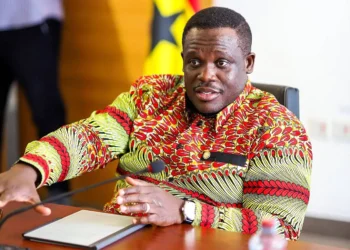Ghana moves up 10 points in the Energy Transition Index (ETI) for 2021 recently released by the World Economic Forum as compared to previous position last year.
Out of 115 countries globally, Ghana placed 56th in the 2021 edition of the Fostering Effective Energy Transition. This is an improvement from last year’s ranking which placed Ghana 66th.
Per the rankings, Ghana made a score of 59.0 % on average, within the last decade from 2012 to 2021.
With such a score, Ghana outperformed peers in the sub-Saharan Africa region including Namibia (59th) Kenya (61st) and Morocco (66th). The West African country that comes close to Ghana in the rankings is Nigeria placing 101.
Ghana scored 69.3% in energy sector performance, and 48.9% in the readiness index for a safe and sustainable energy transition.
Top performers globally include Sweden, Norway, Denmark, Switzerland and Australia. While Venezuela, Lebanon, Mongolia, Haiti and Zimbabwe fall at the bottom of the ranking. According to the report the top 10 performers account for 3 per cent of energy-related carbon dioxide.
The Energy Transition Index provides a measure for the current level of energy system performance in countries. It also captures the readiness of countries to move to a safe, sustainable, affordable and comprehensive future energy system.
The report stresses the need of accelerating progress towards transition. While also halving emissions by 2030 to remain on track to meet the 1.5°C Paris Agreement goal. “We cannot afford to lose momentum or, worse, go into reverse,” the authors stressed.
Driving a faster, bigger, better energy transition
To accelerate the goal of achieving better energy transition, Ghana must get more specific in its nationally determined contributions (NDCs) under the Paris Agreement, the report hints.
It further notes that more commitments should be channelled towards setting out how and when the various sectors of the economy will reach zero emissions, while involving all economic actors and government ministries.
Furthermore, the benefits from decarbonizing energy extends well beyond the energy sector into health, jobs, education, equality and nature conversation.
“This is the year to do it, ahead of November’s COP26 climate summit in Glasgow. [In an era] where all countries must raise their NDCs. As a first step, governments must rally their ministers of energy, climate, transport, health and other portfolios around the same goal: zero-carbon energy. Ministers can then align their policies with the NDC targets and start implementing.”
Government policy will help realize this ambition and continuously ramp it up the way Paris demands. NDCs could drive decarbonisation by ending fossil fuel subsidies and pricing carbon. Also, shifting investments from fossil fuels to renewables, ending the sale of petrol and diesel vehicles, and ending deforestation.
Investing in cities – including low carbon buildings and mobility, renewable power and green spaces – would also enhance national COVID-19 recoveries and Paris contributions, the Coalition for Urban Transitions states.
The report highlights three main focus areas for increasing resilience of the energy transition namely; deliver a just transition for all, accelerate electrification and go beyond and double-down on public-private sector collaboration.
Roberto Bocca, Head of Energy Materials and Infrastructure, WEF remarked that: “To ensure meaningful impact on climate and energy access, we must ensure that energy transition is resilient in a context of growing disruptions and evolving risk.”
READ ALSO: Gather political courage to fight Galamsey– Dr. Jatoe



















